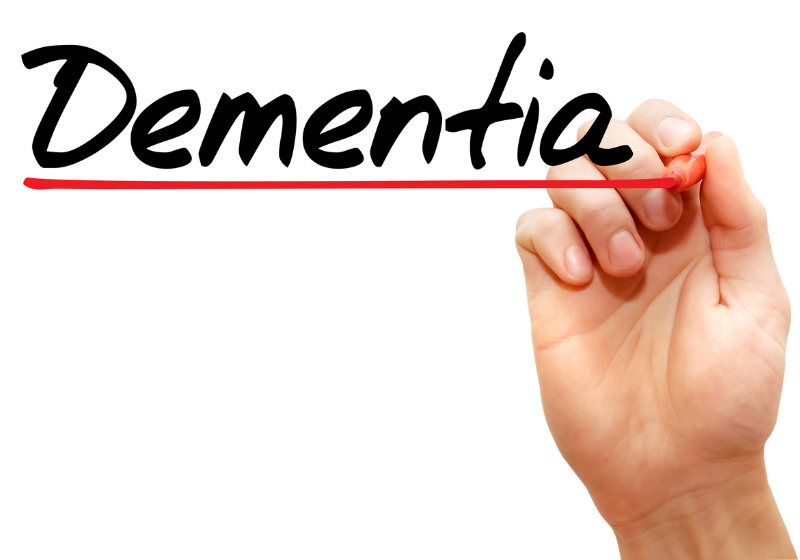In general, dementia produces a diffuse, or global decline in intellectual functioning. The symptoms of dementia cover a wide range of behaviors. These are shown in the table below.
| Memory loss | An inability to learn new information; inability to recall recent events, familiar faces; long term memory is better preserved than recent and short term events |
| Loss of comprehension | An inability to grasp and retain information given; easily distracted; cannot deal with complex statements |
| Loss of general information | Does not know general factual information (everyday events, season, holidays); facts that mentally intact persons take for granted |
| Emotional changes and low frustration tolerance | Difficulty controlling emotions; usual reactions like crying or laughing do not occur; emotionally unpredictable and labile; unable to perceive emotions in others; impatient and unable to delay gratification |
| Verbal changes | Incapacity for self-expression; inability to communicate without errors in word usage or pronunciation; word finding difficulty |
| Loss of orientation | Loss of orientation, initially to time (temporal disorientation), then place (spatial disorientation), then in advanced stages, to person (personal disorientation); there is a need for extraordinary cueing and re-orienting |
| Loss of concentration | Inability to focus and sustain attention and concentration; easily distracted; loses train of thought; cannot carry through on usual tasks; difficulty reading and writing |
| Poor judgement | Difficulty controlling socially-appropriate behaviors; poor decision-making regarding safety, finance, and activities of daily living (ADL’s), often referred to as impaired executive functioning |
| Loss of inhibitions | Behavior is poorly controlled; disinhibition of usual behavior controls; impulsive; inappropriate in social situations |
| Loss of initiative | Inability to initiate activities and carry them out; cannot get started on a project and carry it out; absence of planning and forethought |
| Distorted perceptions | Misperceives and misinterprets what is seen and heard, may be confused by image in a mirror |
| Hallucinations and delusions | Psychotic behaviors; hallucinations tend to be more visual than auditory; delusions are fragmented and unsystematized |
Closing
This article describing the symptoms of dementia is referenced in the Living to 100 Club’s new publication. It is Better, Longer & Happier: A Guide to Aging with Purpose and Positivity. In the Guide, Module 08 is focused entirely on gaining a better understanding of depression, dementia, and delirium.


